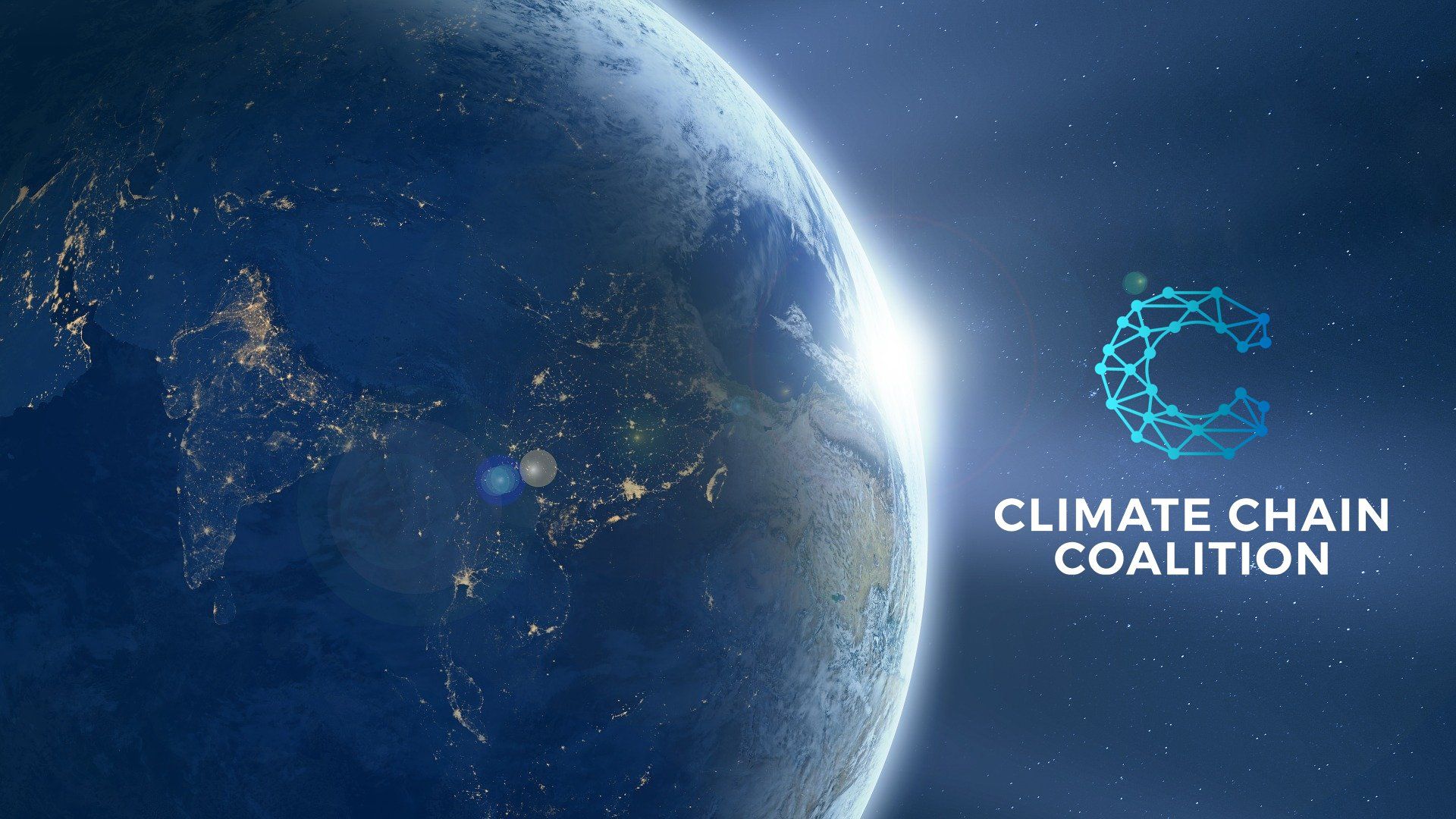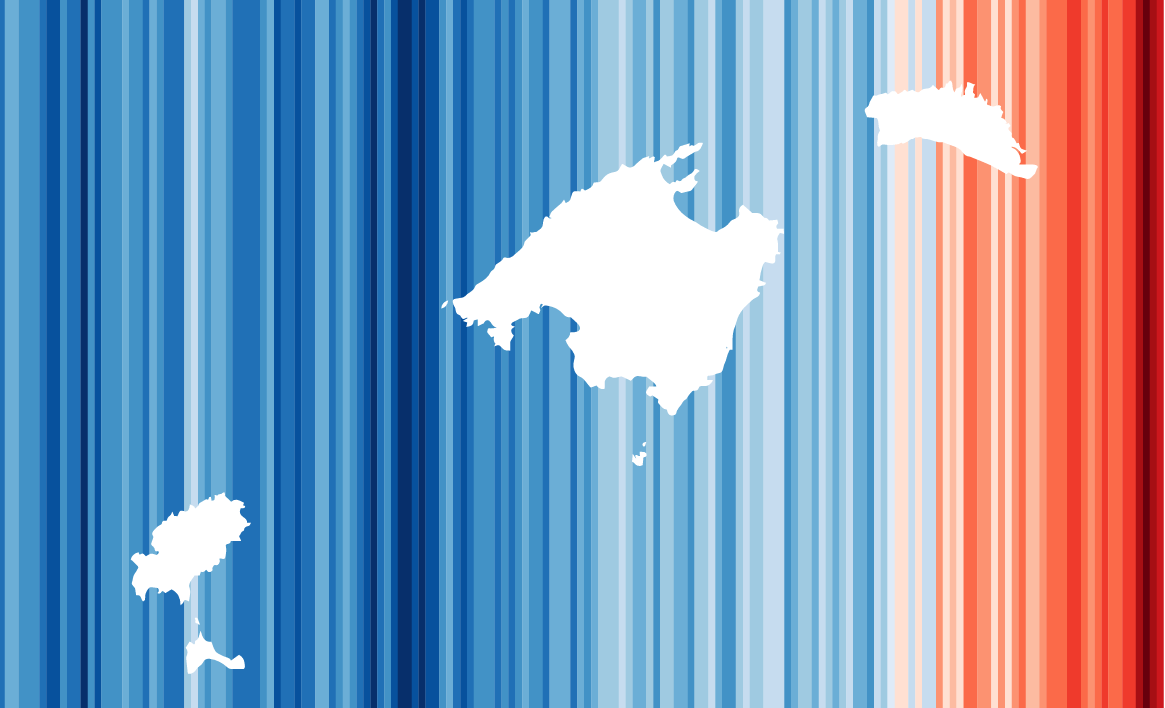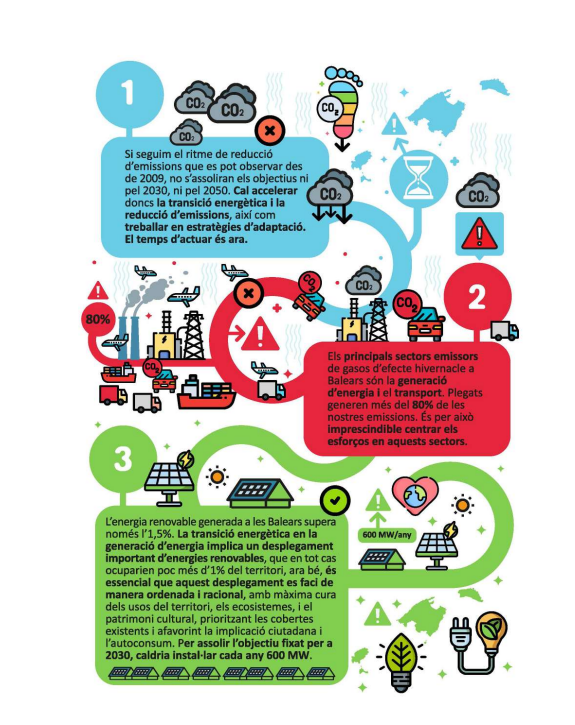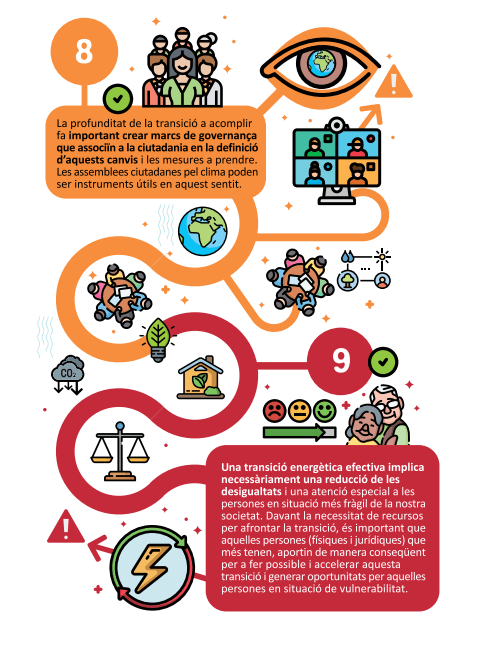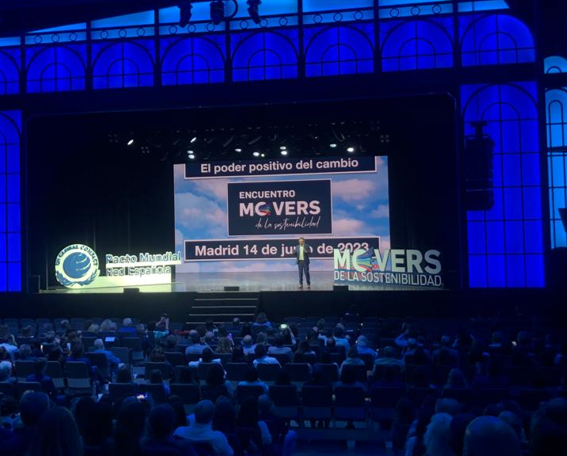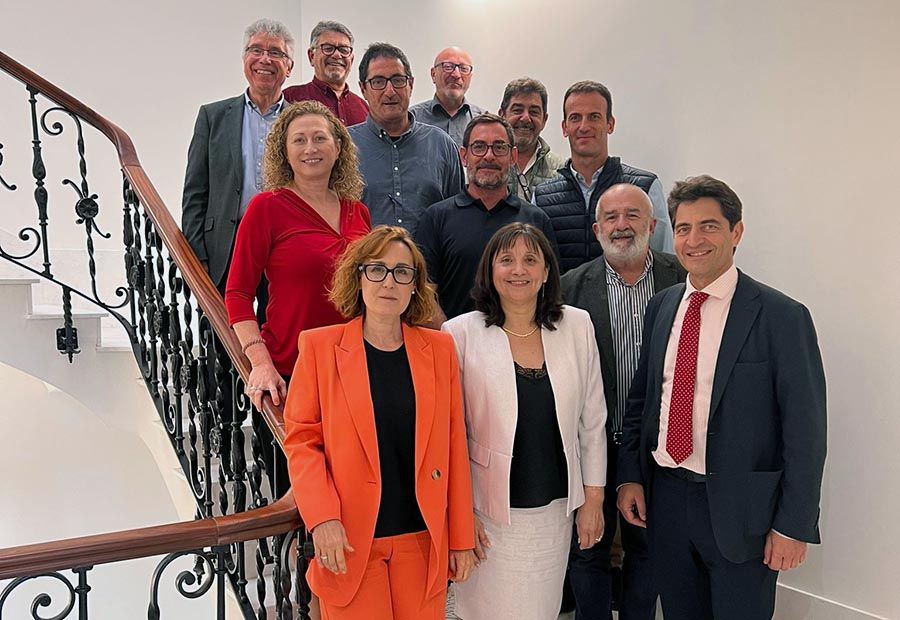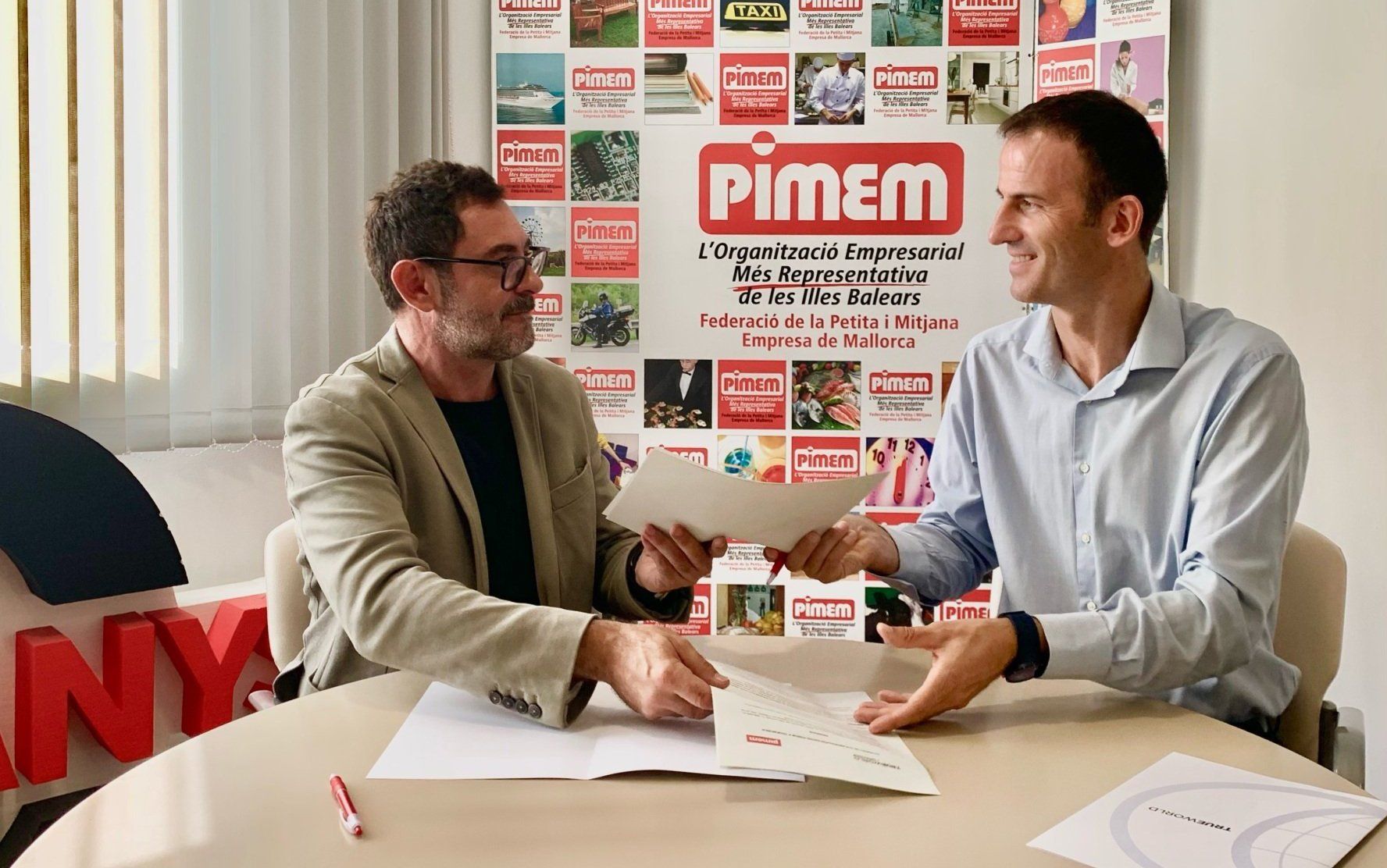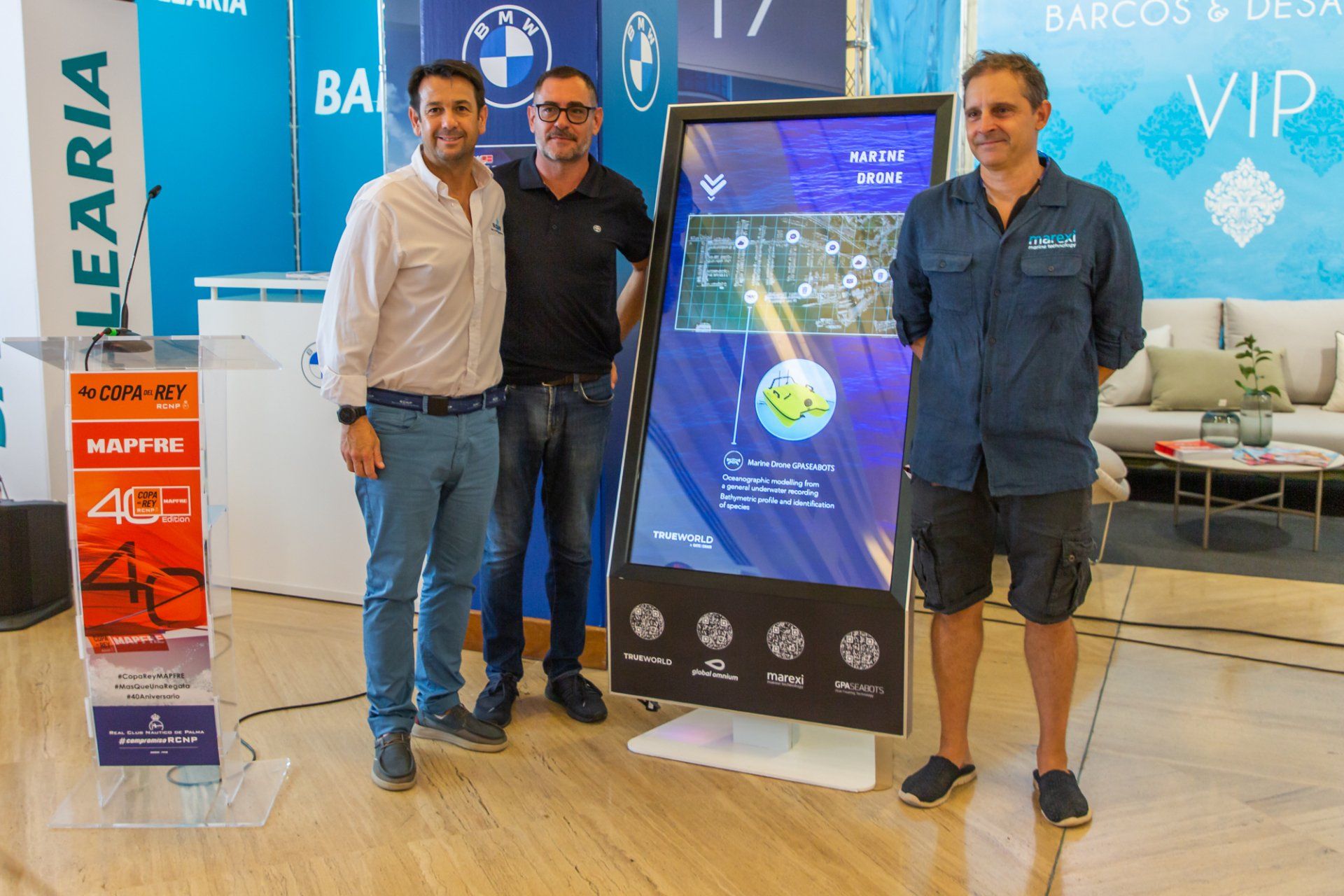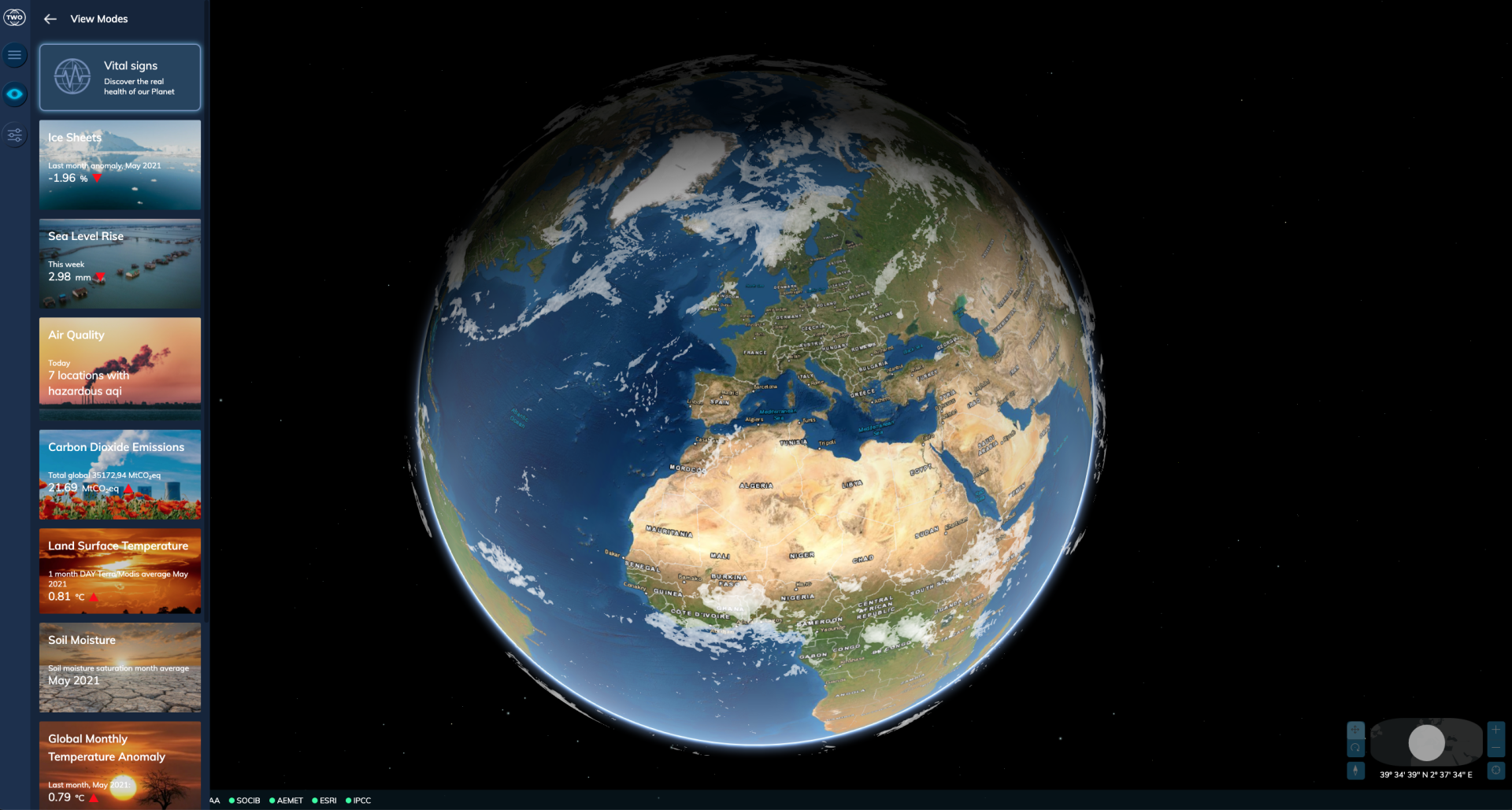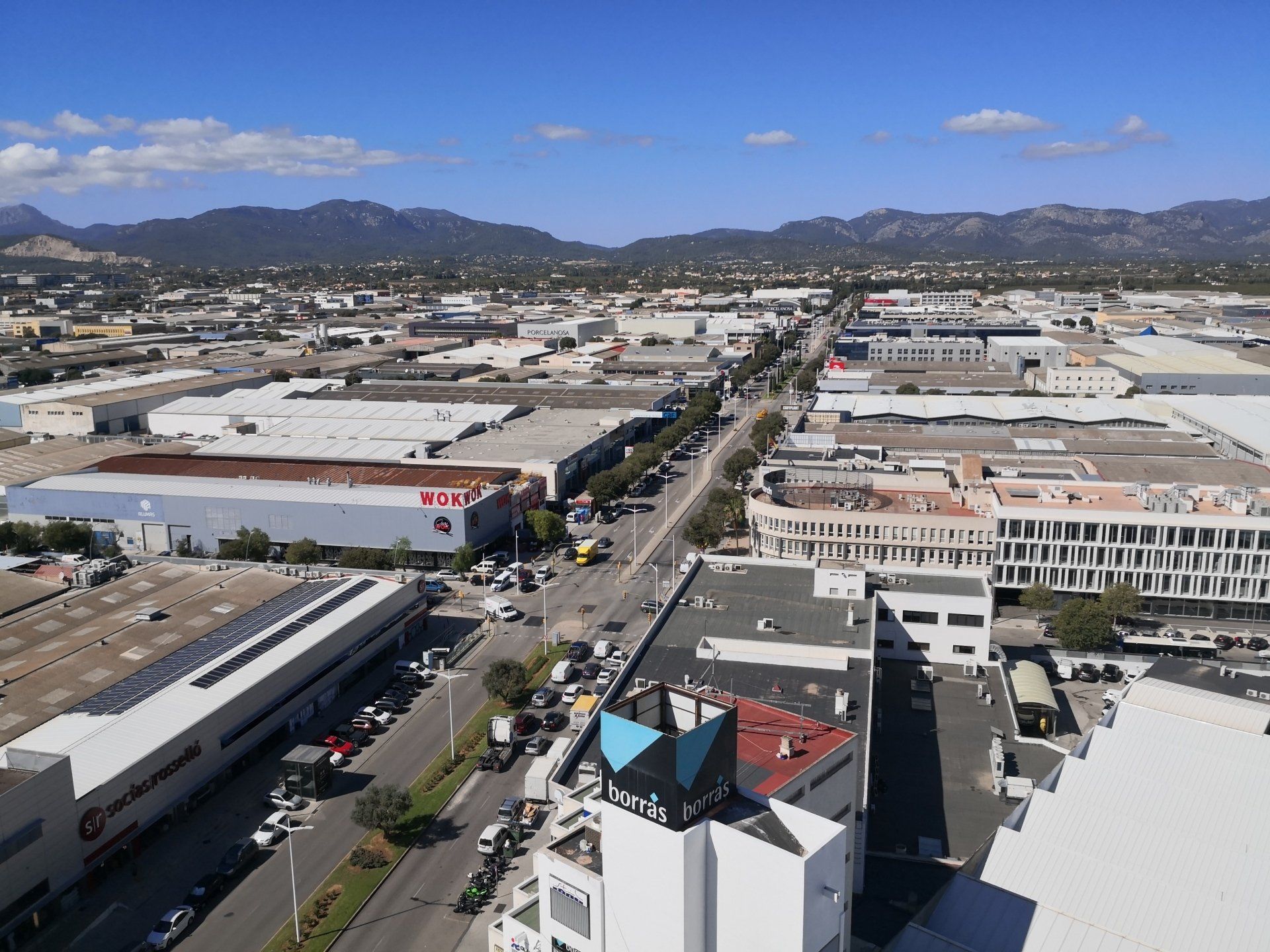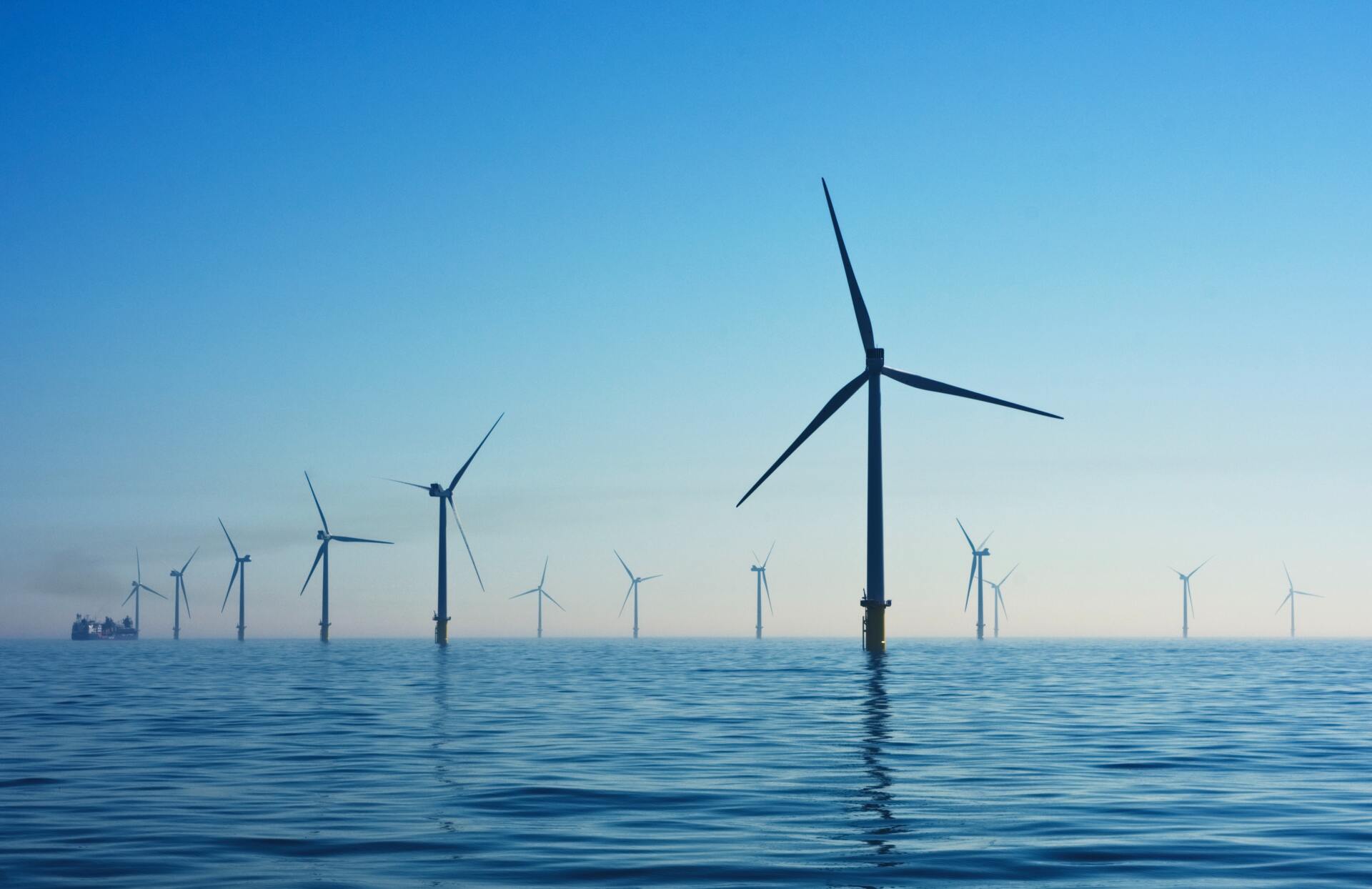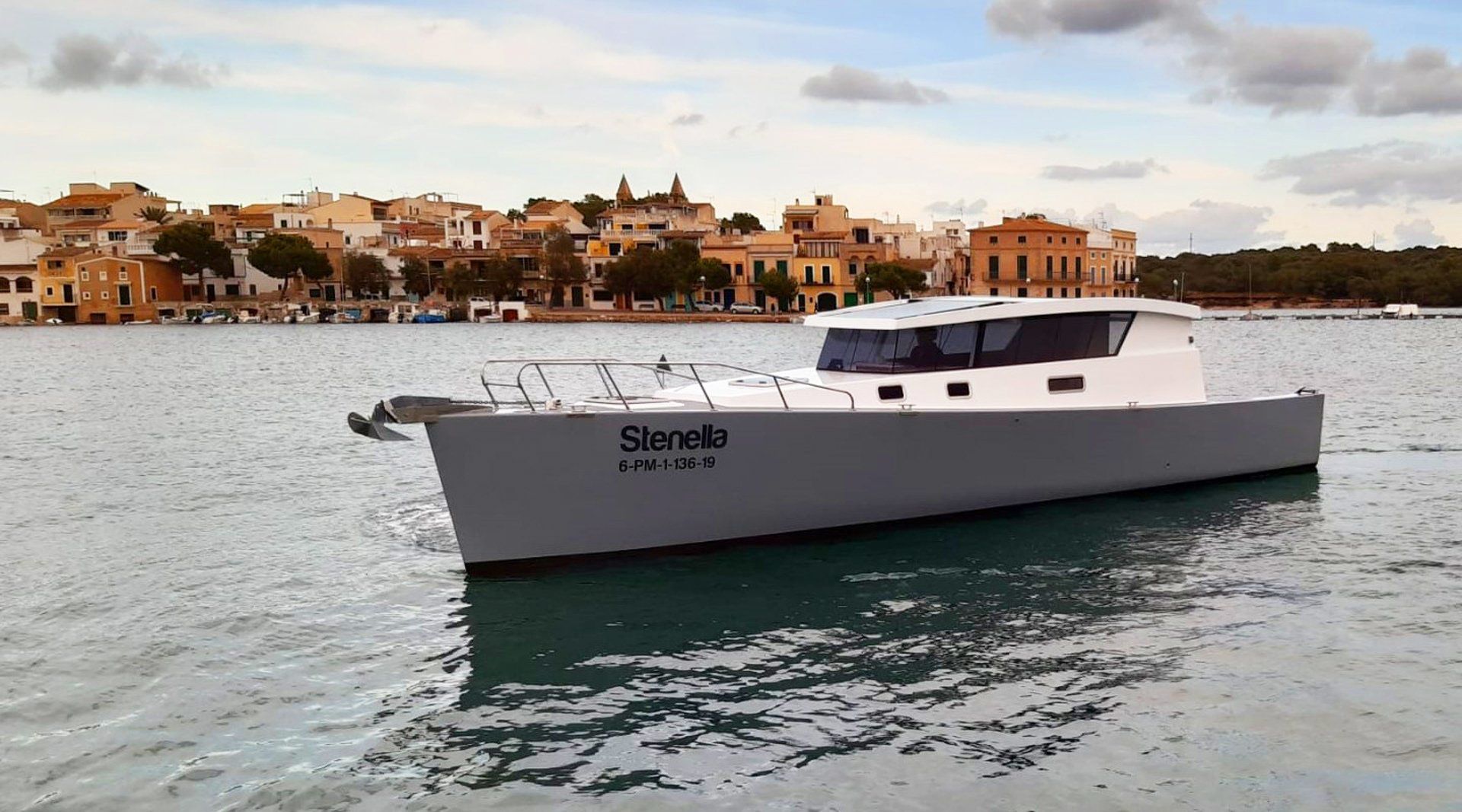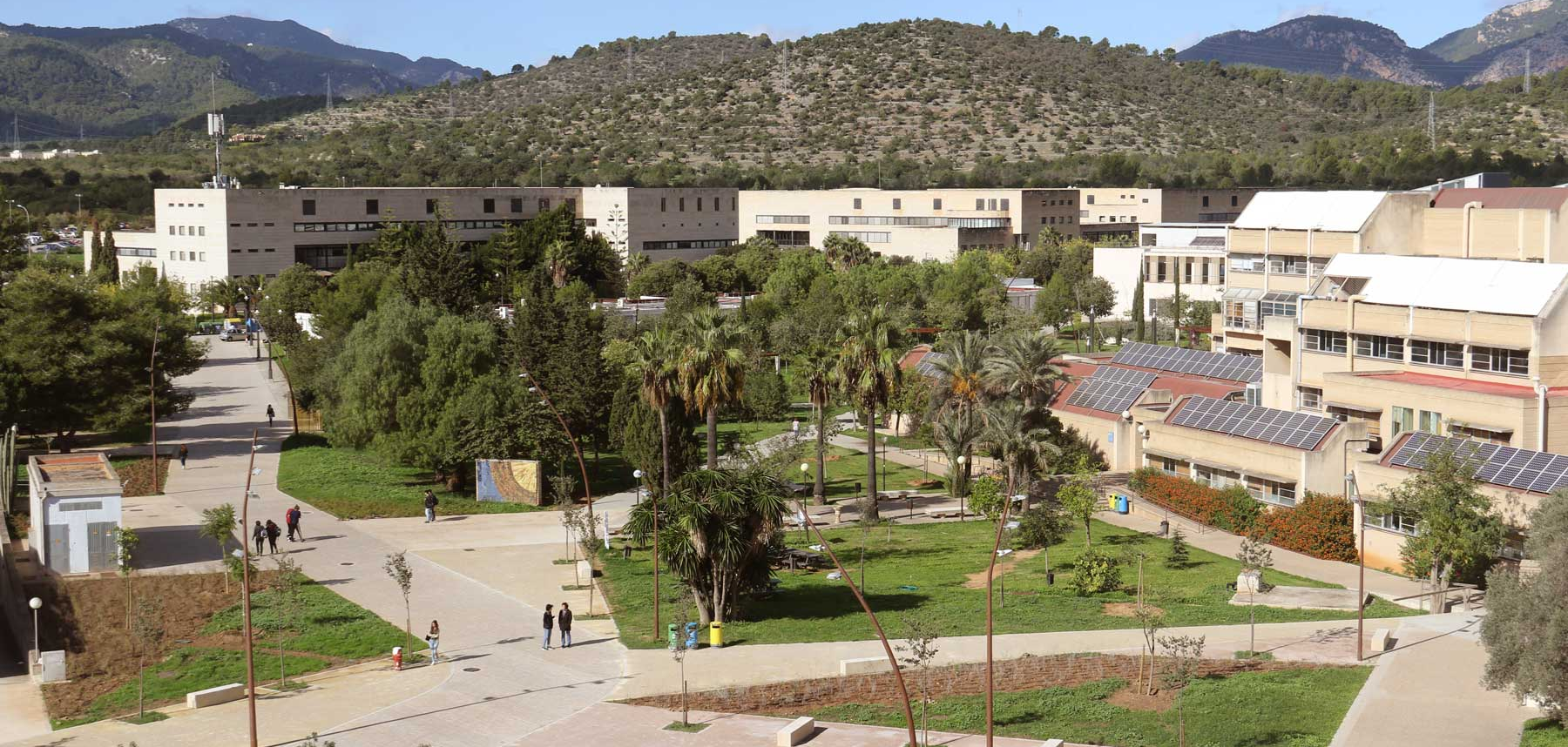Part of the Cover of the First Annual Report of the Committee of Experts for Energy Transition and Climate Change in the Balearic Islands. Each line represents one piece of data.
Maximum and minimum temperatures in the Balearics have already increased by 0.44 °C and 0.37 °C per decade between 1975 and 2015
Sea temperatures have also risen. At the current rate of emissions, temperatures could rise by 3-5°C by the end of the century. In addition, heat waves will become more frequent, more intense and last longer. Sea levels have risen by 1.3 cm per decade on average in the 20th century, but this rise is increasing, with a current trend of 3 cm per decade. Depending on emission trends from now on, sea level in the Mediterranean could rise by 37 to 90 cm by the end of the century. This will undeniably affect our coastline, especially in beach areas, which may be substantially reduced.
Since the beginning of the industrial era, greenhouse gas emissions have steadily increased, leading to the current global warming, which poses risks for the entire planet and its population, including the Balearic Islands. The impacts of climate change are already a reality today and will worsen significantly, endangering both people and ecosystems, if we do not manage to limit global warming to 1.5°C during the 21st century. This means cutting greenhouse gas emissions by half by 2030.
The Balearic Islands will be affected by climate change, with effects ranging from rising sea levels, an increase in the frequency, duration and intensity of heat waves, or the availability of water resources. All this will have an impact on human systems (health, economy, human rights...) and natural systems.

Illustration of the First Annual Report of the Committee of Experts for Energy Transition and Climate Change of the Balearic Islands.
Design: Marc Masmiquel - Masmiquel & Mendiara
Climate change is a global phenomenon that requires action from all territories to tackle. The Balearic Islands have to fulfil their share of responsibility and reduce their emissions, which is why the Law on Climate Change and Energy Transition was approved in 2019. This law set targets in line with what science and European targets established at the time: a 40% reduction in greenhouse gas emissions by 2030 compared to 1990, a 35% share of renewables by 2030 and energy savings of 26% by the same year.
With this framework in mind, the Balearic Islands Committee of Experts for Energy Transition and Climate Change has drawn up its first annual report, from which the following ten conclusions can be highlighted:
1. If we continue at the linear rate of emission reductions observed since 2009, the targets will not be achieved either by 2030 or 2050. We must therefore accelerate the energy transition and emissions reductions, as well as work on adaptation strategies. The time to act is now..
2. The main greenhouse gas emitting sectors in the Balearic Islands are energy generation and transport. Together, they generate more than 80% of our emissions. It is therefore essential to focus our efforts on these sectors.
3.
Renewable energy generated in the Balearic Islands only slightly exceeds 1.5%. The energy transition in energy generation implies a significant deployment of renewable energies, which in any case would occupy little more than 1% of the territory. However, it is essential that this deployment is done in an orderly and rational manner, with maximum care for land use, ecosystems and cultural heritage, prioritising existing roofs and encouraging citizen involvement and self-consumption. To achieve the target set for 2030, around 600 MW2 would need to be installed each year.
Infographic Summary of the key points of the Annual Report of the Committee of Experts for Energy Transition and Climate Change in the Balearic Islands.
4. The sector that consumes the most energy and generates the most emissions is transport (land, air and sea). It is therefore essential to tackle a transformation of land mobility that goes beyond technological or fuel changes and requires an ambitious plan in favour of public transport and transport on foot, by bicycle or in personal mobility vehicles (*PMVs). Equally important is to address maritime and air transport, which are closely linked to the island's economic model, largely focused on tourism. In this regard, not only is it necessary to urgently consider technological substitution so that the means of transport to the islands generate zero or almost zero emissions, but also to reduce the flow of visitors, who also generate a large volume of emissions during their stays (internal travel, consumption of resources that have to be imported, waste generation, energy consumption, etc.).
5. The importation of industrially produced and agro-toxic foodstuffs generates emissions, waste, pollution and waste in all links of the chain. The Balearic Islands have many factors that would allow the development of a socially and economically sustainable and environmentally regenerative agro-livestock farming, improving food security and sovereignty, mitigation and adaptation to climate change and the local circular economy.
6. Abordar de manera racional la emergencia climática en Baleares implica necesariamente abordar el cambio de modelo, que requiere el desarrollo otros sectores no ligados a la actividad turística: agricultura y ganadería sostenibles y regenerativas, manufactura ligada a la recuperación de materiales y al residuo cero, tercer sector e inserción de personas vulnerables, cura de las personas, investigación e innovación, etc.
7. The limited availability of time and resources makes it necessary to identify the best measures to take, which must be those that best respond to the needs of the Islands and their citizens, to their physical and natural reality, and which are efficient both in the use of resources and in the reduction of emissions. In this sense, the electrification of transport and of many energy uses in homes, powered by renewable energies, is a much more appropriate response than the deployment of hydrogen, which is very inefficient and should be focused only on those limited uses in which it can make sense in the Balearic Islands, such as maritime transport or the manufacture of bricks.
8. The depth of the transition to be achieved makes it important to create governance frameworks that involve citizens in defining these changes and the measures to be taken. Citizens' climate assemblies can be useful instruments in this regard.
9. An effective energy transition necessarily implies a reduction of inequalities and special attention to the most vulnerable people in our society. Given the need for resources to face the transition, it is important that those people (individuals and legal entities) who have the most, contribute consistently to make this transition possible and accelerate it and generate opportunities for those in vulnerable situations.
10. The energy transition needed to tackle climate change represents an opportunity to build a more resilient Balearic Islands, with greater well-being, with a citizenry that is better protected against climate, economic and health risks, a healthier citizenry, a more protected natural environment, a diversified economy based on greater education and training of people, as well as less dependence on the outside world (both in fuels and basic necessities).
Infographic Summary of the 10 Keys of the Annual Report of the Committee of Experts for Energy Transition and Climate Change in the Balearic Islands.
The Committee of Experts for Energy Transition and Climate Change of the Balearic Islands is a governance body composed of independent experts, created by the Balearic Climate Change Act 2019 to ensure compliance with the objectives of the Act.
To fulfil this function, the Committee advises the Balearic Government at the request of the Balearic Government, the Balearic Climate Council and also on its own initiative.
The Committee carries out its function with the aim of providing the public and all relevant sectors and actors on the islands with the appropriate measures to achieve an energy transition that allows an adequate response to the climate emergency.
This report has been prepared by all the permanent and invited members of the Committee:
Pau de *Vílchez Moragues (chair of the Committee), Sarah *Oppenheimer (vice-chair of the Committee), Ramon Pujol Nadal, Nuria *Marbà *Bordalba, Aitor *Urresti González, Sònia *Estradè *Niubó, Ivan Murray Mas, Ana *Digón *Elsden, Gabriel Jordà Sánchez and Flor *dell'*Agnolo.
Más notas de prensa...
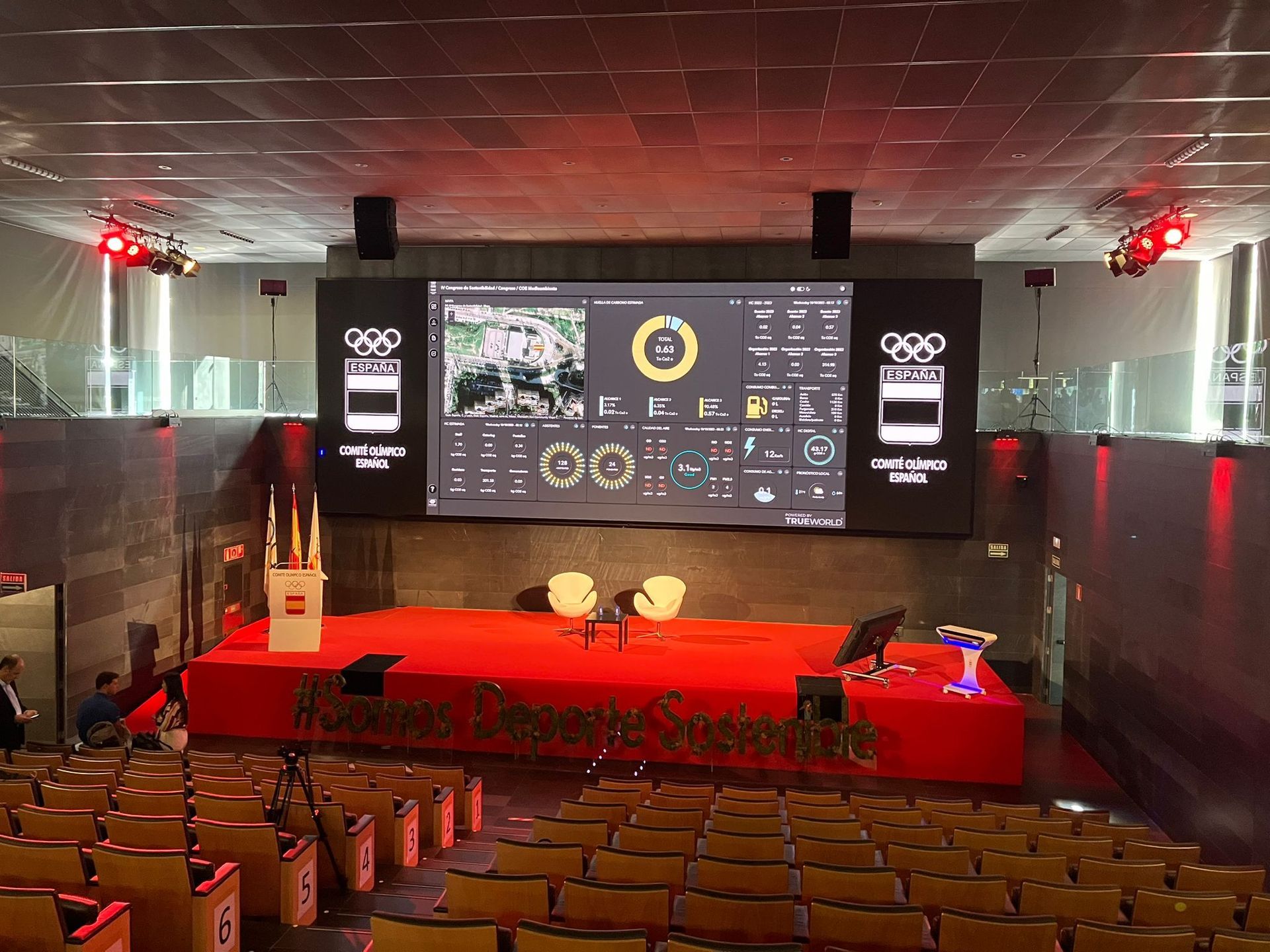
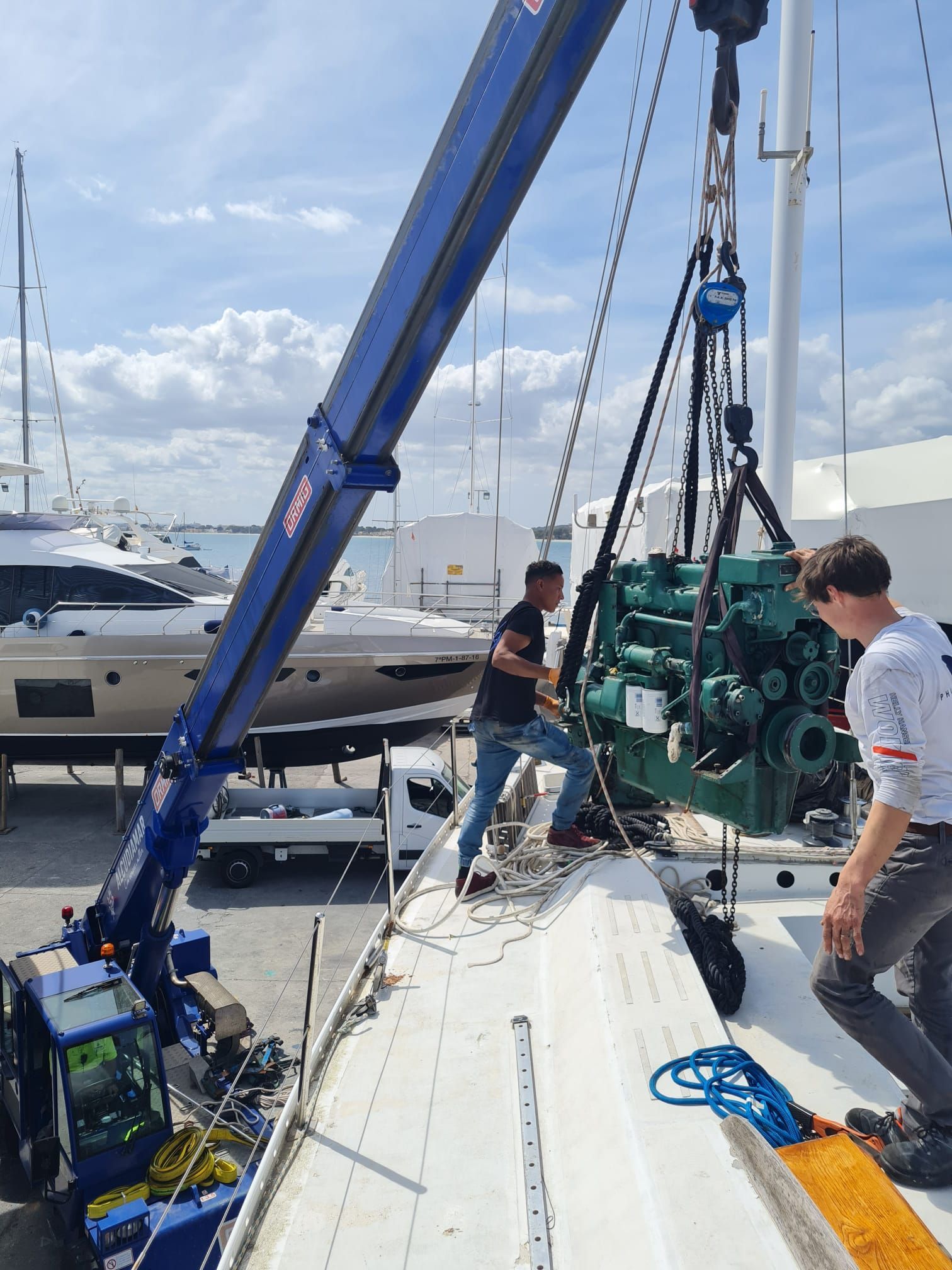
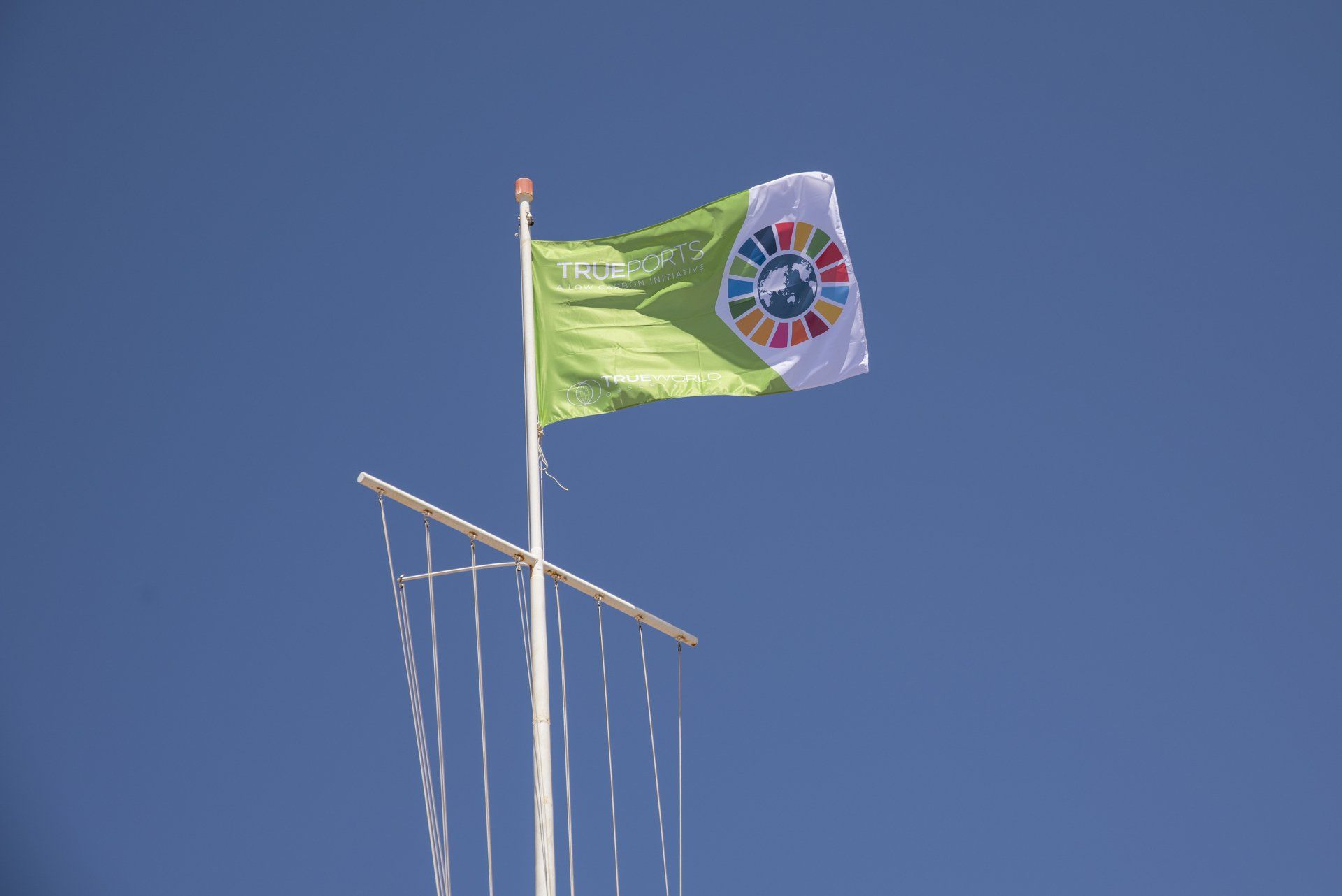
Compartir
También te puede interesar...
